Origins and Early Days
Legal Sea Foods, an American restaurant chain specializing in seafood, traces its roots back to 1904 when Harry Berkowitz opened the "Legal Cash Market" grocery store in Cambridge, Massachusetts.
The name "Legal" came from trading stamps given to loyal customers. In 1950, Harry's son, George Berkowitz, opened a fish market next to his father's grocery store, naming it Legal Sea Foods.
Over time, Legal Sea Foods evolved from a humble fish market to a full-fledged restaurant. In 1968, the Berkowitz family opened their first restaurant in the adjacent space. They initially served simple seafood dishes like fish and chips, fried clams, and fried shrimp on paper plates to customers seated at picnic tables.
Growth and Expansion
In 1975, Legal Sea Foods opened a more traditional outlet in Chestnut Hill, Massachusetts, and later expanded further with its flagship location in the Boston Park Plaza.
During the 1980s, the brand gained recognition as its fish chowder was chosen to represent Massachusetts at Ronald Reagan's first inauguration in 1981. The chowder has been served at every presidential inauguration since.
In 1986, NBC's Today Show named Legal Sea Foods "Best Seafood Restaurant in America." In addition, the company's commitment to quality led them to partner with the United States Department of Commerce in 1990 to develop a Hazard Analysis and Critical Control Points (HACCP) program, which set a new standard for freshness and food safety in the fishing industry.
Key Milestones in Legal Sea Foods' History
| Year | Milestone |
|---|---|
| 1904 | Legal Cash Market grocery store opens |
| 1950 | George Berkowitz opens Legal Cash Market, a grocery store and fish market in Inman Square, Cambridge |
| 1968 | George's son, Roger Berkowitz, opens the first Legal Sea Foods restaurant in Cambridge, MA. |
| 1981 | Legal Sea Foods clam chowder is served at President Reagan's inauguration, starting a tradition. |
| 1990 | Partnership with the U.S. Department of Commerce for the HACCP program |
| 1998 | Named one of the Top Ten Tried and True restaurants by Bon Appétit magazine |
| 1998 | Legal Sea Foods introduces a fresh fish mail-order business. |
| 2005 | The company opens Legal Test Kitchen, a concept restaurant that serves as an innovation lab. |
| 2007 | DeVito/Verdi becomes Legal Sea Foods' advertising agency of record. |
| 2011 | Legal Sea Foods sponsors a controversial dinner featuring fish species listed as unsustainable by Seafood Watch. |
| 2020 | The restaurant segment of the business is sold to PPX Hospitality Brands. |
| 2021 | PPX, in partnership with DoorDash, opens the first two Legal Sea Foods dark kitchens. |
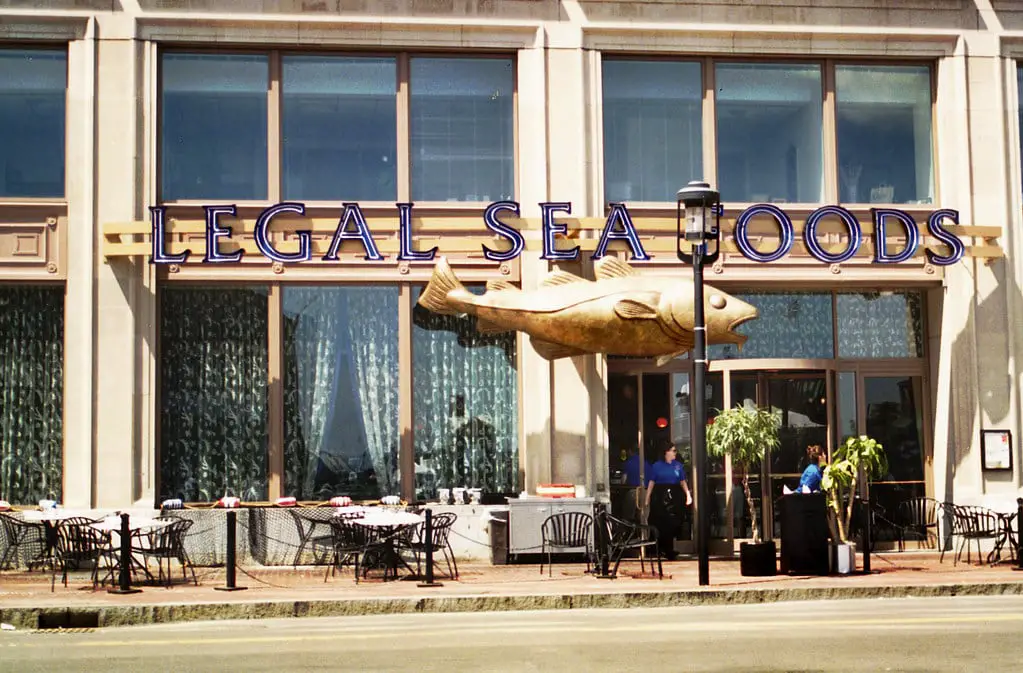
Innovative Concepts and Partnerships
Legal Sea Foods has experimented with various unique restaurant concepts, including Legal Crossing, Legal Test Kitchen, Legal Oysteria, Legal Harborside, Legal Fish Bowl, Legal C Bar, and Legal on the Mystic.
They have collaborated with influential chefs and companies to introduce new offerings, such as the "Cuisineast" program, which fused Asian cuisine into their menu.
The company has always prioritized health and quality, becoming one of the first American restaurants to go trans-fat-free in 2003. In 2005, they introduced gluten-free menu options for customers with celiac disease.
Legal Sea Foods' Unique Concepts
| Concept | Description |
|---|---|
| Legal Test Kitchen | Innovative menu with 50-60% non-seafood dishes |
| Legal C Bar | Casual seafood and custom cocktails |
| Legal Harborside | Flagship restaurant on the Boston waterfront |
| Legal Fish Bowl | Fast-casual concept featuring poke bowls |
Recent Developments
In December 2020, CEO Roger Berkowitz revealed the sale of the restaurant segment of the business to PPX Hospitality Brands. George Berkowitz, the founder of Legal Sea Foods, passed away on February 20, 2022, at 97.
Legal Sea Foods continues to be a beloved restaurant chain, serving over 7 million customers annually with 24 locations across five states.
Navigating the COVID-19 Pandemic and Sale
Legal Sea Foods, a beloved seafood chain, faced immense challenges at the onset of the COVID-19 pandemic. With 33 locations, 3,500 employees, and over $200 million in annual revenue, the company was forced to close all locations for indoor dining in March 2020.
However, they gradually reopened 18 prominent locations in the Greater Boston Area during the summer. Despite receiving $10 million from the federal government's Paycheck Protection Program, the funds ran out in August 2020, prompting Legal Sea Foods to explore mergers with other restaurant operators.
In December, the group joined forces with PPX Hospitality Brands, a subsidiary of Danu Partners. Roger Berkowitz maintained control over online and retail sales under the Legal Sea Foods brand as part of the sale agreement.
Concurrently, PPX took over ownership of the restaurant chain and the Quality Control Center located in South Boston. As a result, some vendors reported not being fully compensated, even though Berkowitz had allocated adequate funds.
In 2021, PPX partnered with DoorDash to open the first two Legal Sea Foods dark kitchens, expanding the brand's footprint and tapping into the growing food delivery market.
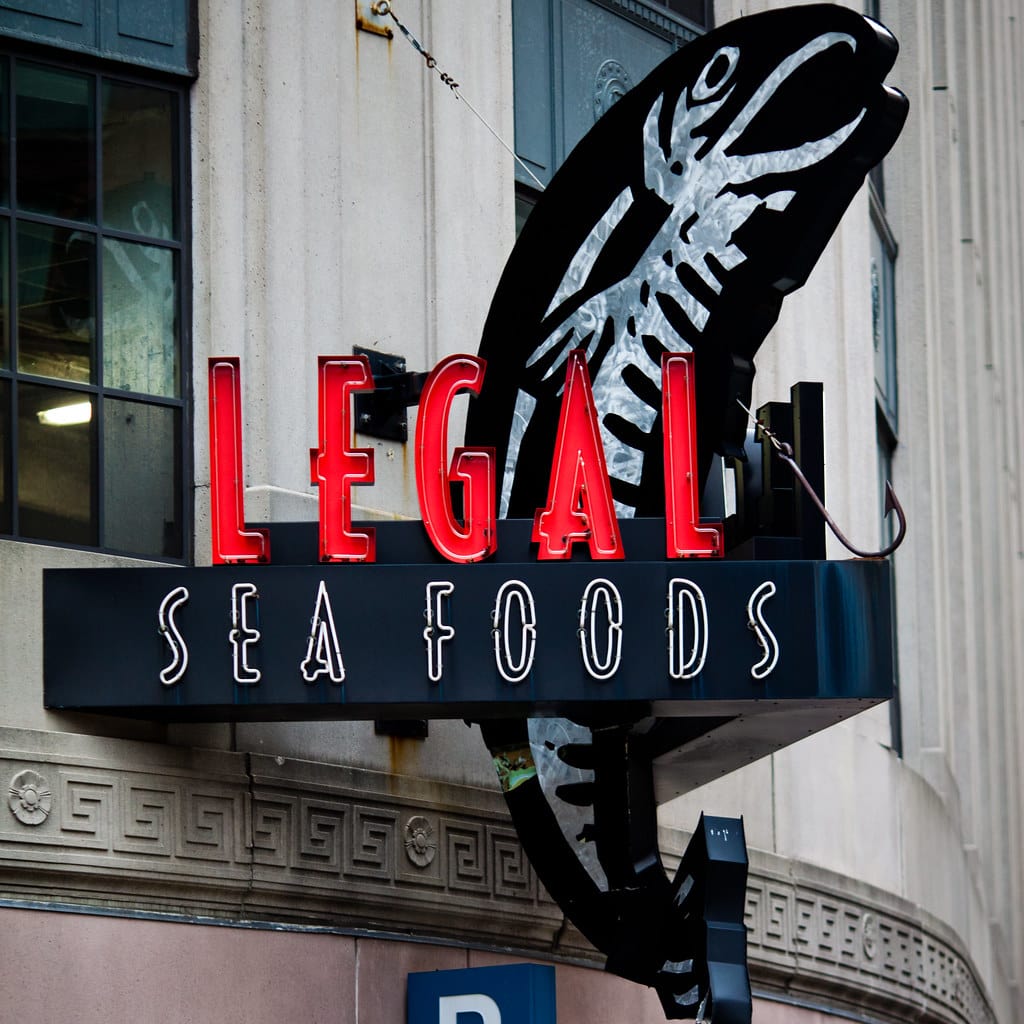
Commitment to Sustainability
At SENA15, CEO Roger Berkowitz emphasized Legal Sea Foods' commitment to sustainability. He discussed the responsibility of sourcing fish appropriately and avoiding areas that may not support the species.
Legal Sea Foods is known for its "top catch" fishing methods and sourcing from "day boats" to ensure the freshest catch. The New England chain also only serves fish within National Ocean and Atmospheric Administration (NOAA) guidelines, which are considered sustainable by the federal government.
In January 2011, Legal Sea Foods hosted a dinner that showcased many fish species deemed unsustainable by the advocacy group Seafood Watch. In addition, Berkowitz argued that much of the science around sustainable fisheries was "flawed" and "outdated." The event received mixed responses from environmental organizations, fishermen, and the media.
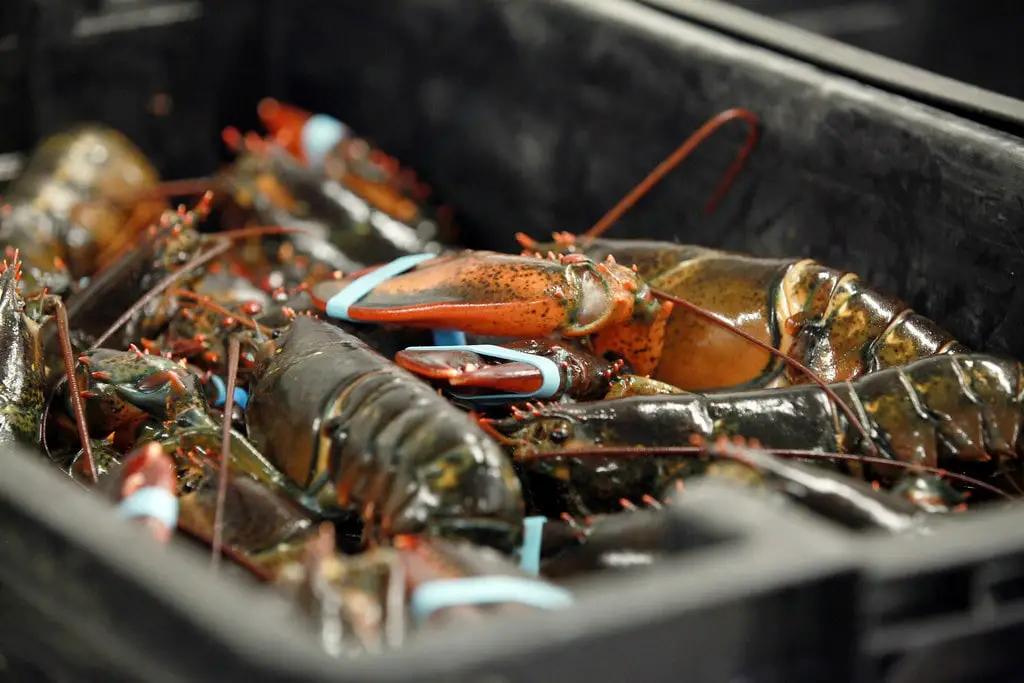
Mouthwatering Menu
The menus vary by season, location, and concept, featuring over 40 fresh fish and shellfish varieties prepared according to New England tradition. Some popular items include lobster, crab cakes, clam chowder, fried clams, shrimp cocktails, surf and turf, baked scrod, tuna burgers, and grilled fish fillets. Legal Sea Foods also offers extensive wine lists and full-service bars at all locations, boasting value at all price points.
The company's emphasis on buying directly from day boat fishing operations and industry advances in fish handling has contributed to its reputation for having the freshest fish.
Media Presence and Awards
Legal Sea Foods has received various accolades, including being featured in Bon Appétit magazine and Patricia Schultz's "1,000 Places to See Before You Die." The company has also won numerous restaurant awards, including "100 Most Scenic Restaurants in America" for Legal Harborside and "Best Clam Chowder" from Boston Magazine.
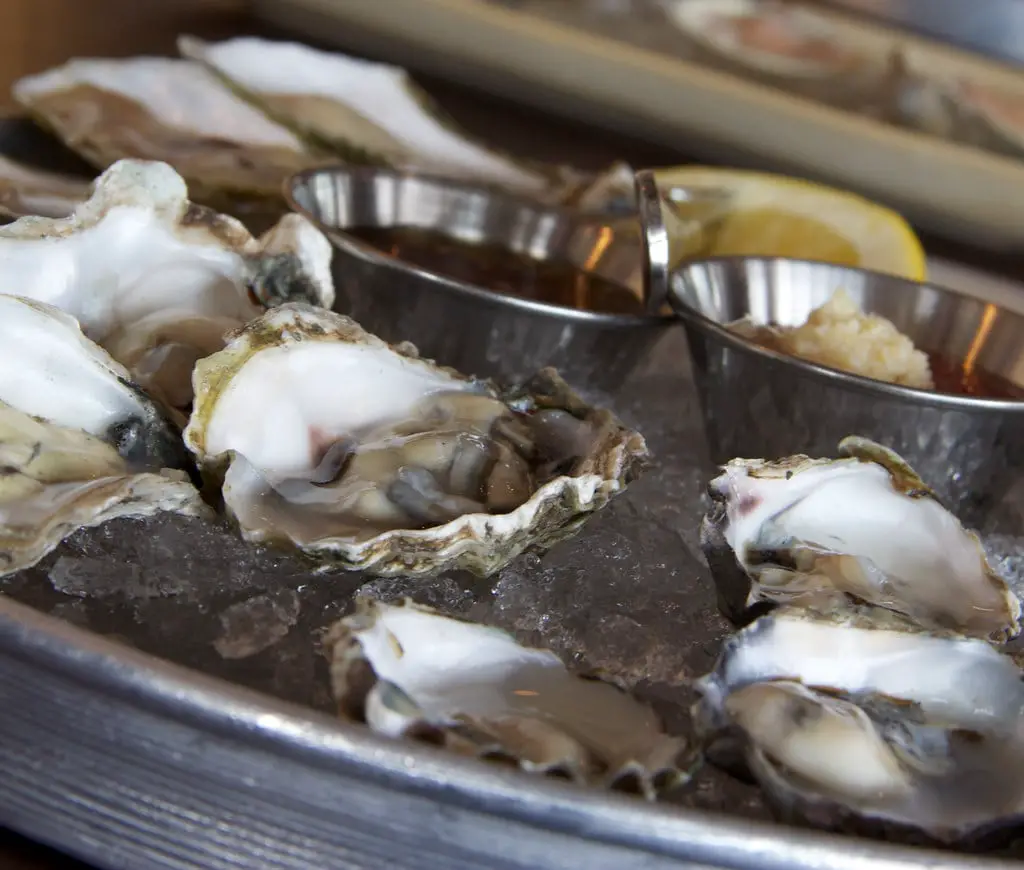
Advertising and Marketing
Since 2007, Legal Sea Foods has entrusted DeVito/Verdi as their go-to advertising agency. As a result, the company has launched several humorous and controversial ad campaigns, including "Really Fresh Fish," "Fresh Insights," and "Welcome to Legal."
In 2015, Legal Sea Foods initiated a multimedia advertising campaign to establish a new religion known as "pescatarianism," comparing it to other established religions. This campaign received mixed reactions and minor backlash from some religious individuals.
During the 2016 presidential primary, Legal Sea Foods launched a parody campaign with CEO Roger Berkowitz declaring himself a candidate for President of the United States. The company has also partnered with Uber and the Greater Boston Food Bank for promotions, such as delivering clam chowder in Boston.
Affiliations and Partnerships
Legal Sea Foods has maintained strong affiliations with the Boston Red Sox, Boston Celtics, Washington Capitals, and the National Women's Hockey League's Boston Pride.
The company has sponsored various promotions, like the Celtics' "Fan of the Game," which has been played at every home game for over ten years. Legal Sea Foods also introduced the "Lobster Lob" at all Boston Pride home games during the 2019-2020 season.
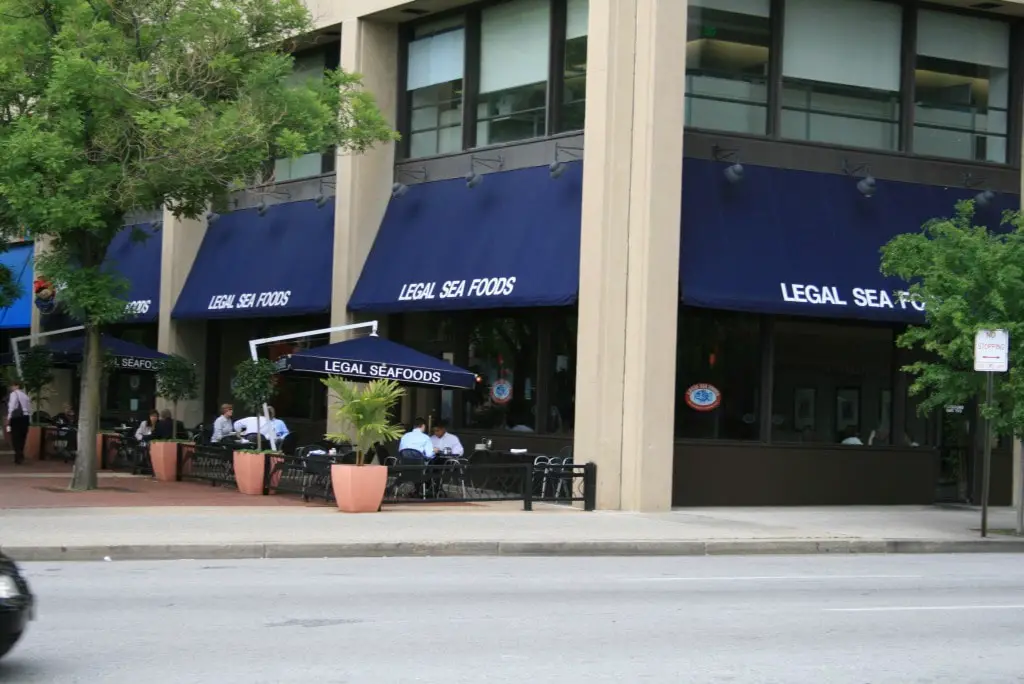
In Summary
Legal Sea Foods has navigated challenges, such as the COVID-19 pandemic, while maintaining a solid commitment to sustainability and innovation. With a diverse menu, unique concepts, and various accolades, the company has become a beloved seafood restaurant chain in the New England area.
Its humorous and controversial advertising campaigns have kept the brand in the public eye, while its partnerships and affiliations demonstrate its dedication to local sports teams and communities.
